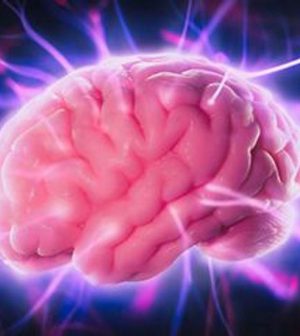- Could Your Grocery Store Meat Be Causing Recurring UTIs?
- Are You Making This Expensive Thermostat Error This Winter?
- Recognizing the Signs of Hypothyroidism
- 10 Strategies to Overcome Insomnia
- Could Artificial Sweeteners Be Aging the Brain Faster?
- Techniques for Soothing Your Nervous System
- Does the Water in Your House Smell Funny? Here’s Why
- Can a Daily Dose of Apple Cider Vinegar Actually Aid Weight Loss?
- 6 Health Beverages That Can Actually Spike Your Blood Sugar
- Treatment Options for Social Anxiety Disorder
Neighborhoods May Matter When It Comes to Epilepsy

For people with epilepsy, living in lower-income neighborhoods is associated with worse mental functioning, new research suggests.
For the study, the researchers looked at the memory, thinking ability and mental health of people with epilepsy, and found differences based on where they lived. Brain-health issues were more common among those from disadvantaged areas with fewer educational and employment opportunities, according to a report published online April 19 in the journal Neurology.
“Epilepsy research has arguably ignored the potential impact of the social determinants of health in neighborhoods on cognition — factors that have been hiding in plain sight for many years,” said study co-author Robyn Busch, of the Cleveland Clinic in Ohio.
“Our study shows that these neighborhood social factors are linked to epilepsy outcomes,” Busch said in a journal news release.
Epilepsy, a brain disorder, causes recurring seizures.
The researchers used a registry of people with temporal lobe epilepsy, the most common adult form of epilepsy. This is associated with a high risk for thinking problems and depressed mood.
The study team identified 800 people, average age 38, whose epilepsy was resistant to treatment and who had been evaluated for potential epilepsy surgery. The investigators compared their scores on intelligence, attention, memory, other thinking skills, anxiety and depression.
Using participants’ home addresses and the Area Deprivation Index, the researchers determined if each person lived in an advantaged or disadvantaged area, dividing them into five groups based on neighborhood advantage.
In a composite score of all attention tests, people in neighborhoods with the most disadvantage had an average score of 85 compared to 95 for those with the least disadvantage. Higher scores indicate better attention.
The study found similar results on measures of intelligence, processing speed, language and visuospatial skills.
People in the most disadvantaged neighborhoods were most likely to have worse outcomes across tests of different thinking skills when compared to those with the least disadvantage, according to the study authors.
People of color were overrepresented in the most disadvantaged neighborhood group. They were nearly three times more likely to have reduced scores on multiple cognitive tests than white people, the findings showed.
The results were similar for mental health issues. People living in neighborhoods with the most disadvantage reported mild symptoms of depression and anxiety, while those in neighborhoods with the least disadvantage reported minimal symptoms of depression and anxiety.
Area Deprivation Index scores were measured at only one point in adulthood, and this is a limitation of the study. Also, the study can’t prove that living in a poor neighborhood causes memory and mental health problems. It only shows an association.
More information
The U.S. Centers for Disease Control and Prevention has more on epilepsy.
SOURCE: Neurology, news release, April 19, 2023
Source: HealthDay
Copyright © 2026 HealthDay. All rights reserved.










